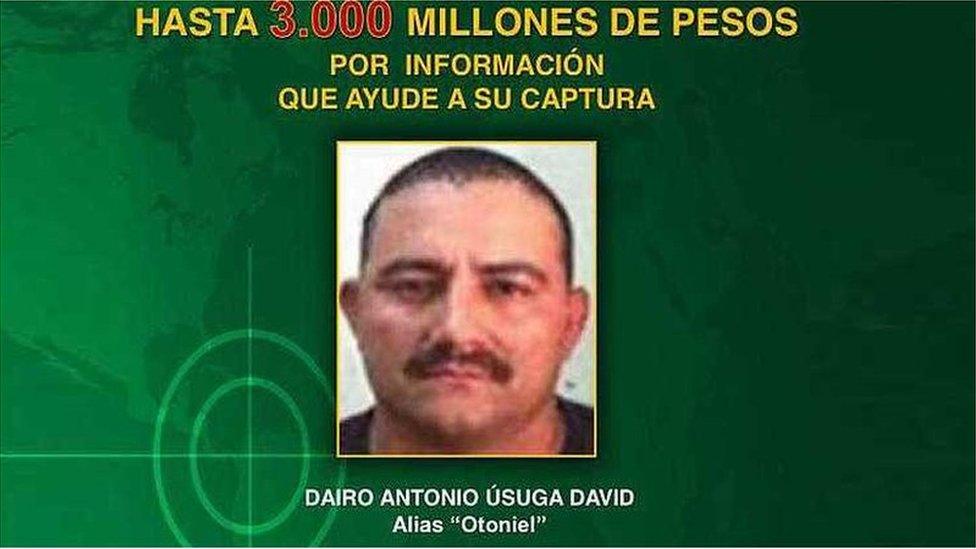Colombia's main gang declares unilateral ceasefire
- Published

Police are offering $1m for information leading to the capture of leader Otoniel
Colombia's biggest criminal gang has declared a unilateral ceasefire to help "bring about peace".
The gang, known as the Gulf Clan or Los UrabeƱos, said it would stop "offensive military actions from 13 December".
The truce comes three months after the gang's leader said it would surrender and he would hand himself in. A framework is still being worked on.
Police have warned that criminal gangs such as the Gulf Clan are the biggest risk to security in Colombia.
Battle for control
The Gulf Clan is estimated to have about 1,500 active members. It controls many of the routes used to smuggle drugs from Colombia to the US and as far away as Russia.
The group also engages in extortion, illegal mining, human trafficking, forced displacements and murder.
Last month, police seized 12 tonnes of cocaine believed to have belonged to the Gulf Clan
While it was first created in the north of Colombia, in the Gulf of UrabĆ” - hence its names - it has expanded into many of Colombia's provinces and beyond.
But in recent months its number two and 34 other key figures have been killed or arrested in a joint police and military operation.
With his deputy killed and the security forces closing in, the gang's leader, known as Otoniel, announced in September that he was willing to surrender.
The government is currently working on a legal framework for members of criminal gangs to collectively turn themselves in.
In a statement, the gang said that even though that legal framework was not in place yet the gang "remained committed to the efforts which will allow us to contribute to a total, lasting and integral peace".
Last year, Colombia's largest rebel group, the Farc, signed a peace deal with the government and negotiators are currently holding talks with the second-largest guerrilla group, the National Liberation Army.
Police warn that some areas formerly under the control of the rebel groups have been taken over by criminal groups such as the UrabeƱos and that their fight for territory is driving violence up.
- Published6 September 2017
- Published21 November 2016
- Published31 October 2012